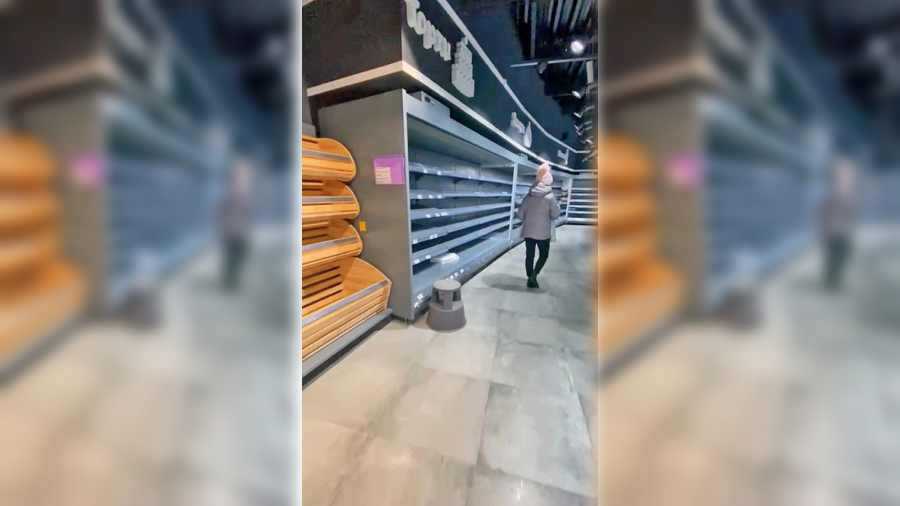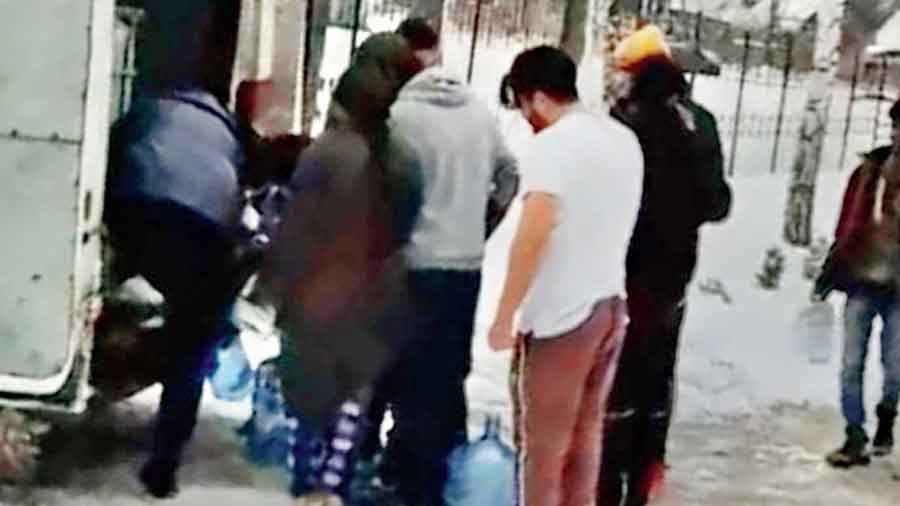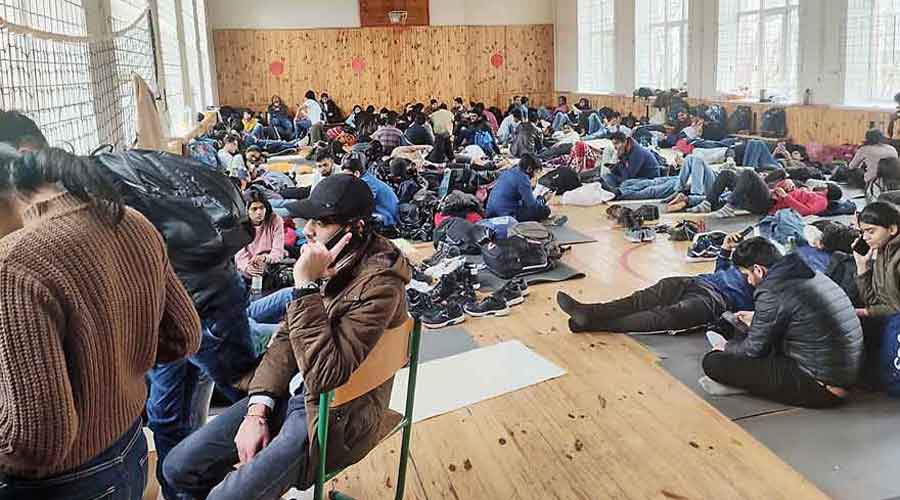No bath for three days, queuing up for an hour once a day to collect drinking water, digging up the snow and melting it to use the water in the toilet…
Indian students stuck at their hostel in the city of Sumy in Ukraine, near the Russian border, said they are spending each day like this, waiting for help from the Indian embassy, which is only asking them to stay put.
“We have been calling up the embassy numbers. They have been saying the same thing for the last 10 days – it is too risky to travel from Sumy. So, stay put,” said an Indian student, Sheikh Mohammad Danish, who is from Telengana and is a fourth-year medical student of Sumy State University.
Sumy is located in the northeastern part of Ukraine near the Russian border. The hostel is about 100km from the border, said the students.
Danish and many of his friends have not taken baths for the last three days. There is no water in the tap — which had been their primary source of water in the last few years, students said.
“Bathing is a luxury now. There is no water even in the toilet. It is so stinky and unhygienic, one cannot imagine,” he said. The 700-odd students who live in three hostels — each a nine-storey building — in Sumy are surviving on water they collect every morning from bowsers arranged by a volunteer group.
“We have to carry bottles and stand in a queue every morning. Only the first few students can fill their bottles before the stock gets exhausted. The rest return empty-handed,” Danish said.
Bishal Das, a third-year medical student of the same university, said he and his friends collect snow every morning, melt it on a heater and use the water in the toilet.
Some are chewing gums to kill hunger, while others are eating only dry food like bread and chips to avoid cooking, which needs water. Many students are running low on stocks and they are scared to go to the market to buy provisions because they could get shot on the way.

A department store near the hostels in Sumy has almost run out of stock Sourced by the correspondent
“Civilians are walking with arms. Even if we spot a roadside tap, Ukranians are not allowing us to collect water. They will collect water first and we have no option but to stand in silence, especially because these days even civilians are armed. Some carry AK-47s,” Bishal said.
Even if students are mustering the courage to step out and visit the nearest store to buy groceries, they are returning disappointed because the stores, too, are not being refilled.
Many students, unable to endure the stress of staying in a war zone, had started to move towards the Russian border hoping to be rescued but were allegedly stopped on the way. They were told by the Indian embassy in Ukraine to “stay inside shelters and avoid unnecessary risks”.
Danish said he and his friends fear they, too, would be stopped if they tried to proceed towards the Russian border.
“There is shelling almost every day. The other day there was so much of shelling that three of the girls in our hostel fainted out of fear. The railway lines are damaged. If we try to flee through the western border, the closest point is 1,300km away. It is too risky for us to travel such a long distance without any administrative help,” Danish said.
With the train lines damaged, anyone trying to leave Sumy would have to travel by road.
Bishal said since Sumy is close to the Russian border, all Russian reinforcements entering Ukraine are passing through the city.
“Russian soldiers pass through the road outside our hostels. They can knock on our doors any day. Yet we are hopeful that the embassy will soon arrange a bus for us to leave the city,” Bishal said.
Even if students are mustering the courage to step out and visit the nearest store to buy groceries, they are returning disappointed because the stores, too, are not being refilled.
Many students, unable to endure the stress of staying in a war zone, had started to move towards the Russian border hoping to be rescued but were allegedly stopped on the way. They were told by the Indian embassy in Ukraine to “stay inside shelters and avoid unnecessary risks”.
Danish said he and his friends fear they, too, would be stopped if they tried to proceed towards the Russian border.
“There is shelling almost every day. The other day there was so much of shelling that three of the girls in our hostel fainted out of fear. The railway lines are damaged. If we try to flee through the western border, the closest point is 1,300km away. It is too risky for us to travel such a long distance without any administrative help,” Danish said.
With the train lines damaged, anyone trying to leave Sumy would have to travel by road. Bishal said since Sumy is close to the Russian border, all Russian reinforcements entering Ukraine are passing through the city.
“Russian soldiers pass through the road outside our hostels. They can knock on our doors any day. Yet we are hopeful that the embassy will soon arrange a bus for us to leave the city,” Bishal said.


